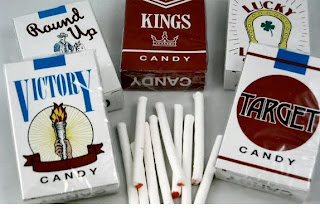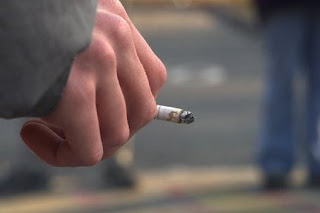Former smokers have a better-functioning memory than those who still light up, a new study finds.
On a practical test of their recollection ability, people who on average had quit smoking for 2.5 years performed 25 percent better than current smokers did. People who had never smoked scored 37 percent better than the smokers.
"We already know that giving up smoking has huge health benefits for the body, but this study also shows how stopping smoking can have knock-on benefits for cognitive function, too," said study researcher Tom Heffernan, a psychology professor at Northumbria University in England.
Lighting up, or learning?
The researchers aimed to measure "real world" memory abilities by sending 69 study participants on a tour of a university campus. Twenty-seven were smokers, 18 were former smokers, and 24 never smoked.
The participants were given a list of 15 locations around campus and an action to perform at each location. For example, upon reaching the library, participants were supposed to remember to check for messages on their cell phones; upon reaching the sports center, they were supposed to remember to ask about the cost of membership.
On average, the smokers performed 8.9 tasks correctly. The participants who had quit smoking averaged 11 correctly performed tasks, and those who had never smoked averaged 12.1. There were no differences between the groups in terms of their IQs, the study said.
Previous studies showed that
quitting smoking improves "retrospective memory," which is the ability to learn information and retrieve it later. The new study instead measured participants' "prospective memory," which is the ability to remember to carry out a particular action at some future point in time.
For example, remembering to take medication at a certain time of day requires prospective memory.
Previous research on the effect of smoking on prospective memory yielded mixed results, with some results showing smokers were worse off, and others showing no effect from smoking, the study noted.
How does it work?
Although it is unclear exactly how smoking may interfere with memory, research has shown that chronic smoking is linked to a breakdown, or atrophy, of parts of the brain.
The researchers hypothesized that smoking could damage brain areas such as the prefrontal cortex, hippocampus or thalamus; all of those regions have been linked in brain imaging studies to prospective memory, they said.
Heffernan also has studied the effects of alcohol and marijuana on memory. He and the other researchers acknowledged that their new study was small and relied on self-reports of smoking, which would be subject to inaccuracy and dishonesty on the part of participants. Future work should follow a cohort of smokers and former smokers over time, they said.
The study will be published in an upcoming issue of the journal Drug and Alcohol Dependence.









